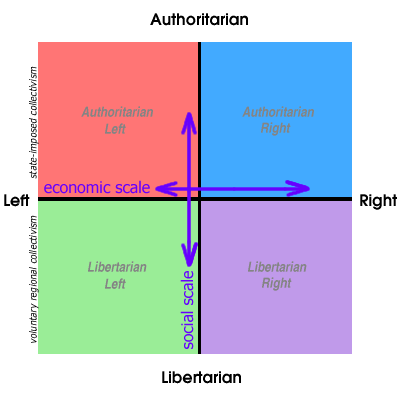Badassbab said:
mrstickball said:
I agree it was a lethal mix. You can't incentivize bad behavior (promoting government-backed loans to minorities to improve home ownership) while negating risk. It allows for systemic exploitation of the free market, which causes it to collapse. That is why my view is that we must remove all Keynesian policies from the government and let the free market determine the amount of risk needed in the system - which is likely to be far more fiscally conservative than was ever allowed during the sub prime crisis.
|
Yes but a key problem with the idea of free market is that it has never fully existed (like communism in fact) so can't really compare. Reason it's never really existed in it's most pure state is because it probably wouldn't work. In economics you have what's called externalities and companies just do not take it into account because what's important is the bottom line. The current crisis was (amongst other reasons) because of a lack of regulation and too much risk. The financial institutions, banks, loan sharks, credit agencies etc had free reign to lend/advise money, Governments took a step back and let them get on with it. That's a fairly free market thought. The religious like invisible hand school of thought didn't work.
|
But again, the reason the government 'took a step back and let them get on with it' was that they initiated the activity themselves. As I said, the government incentivized the bad behavior by removing systemic risks from loaning to certain parties. That is certainly not a free market activity. For example, look at when American home ownership began to skyrocket in late 1994 through 2006. Did the banks initiate a new policy in 1994? Yes. The government forced them to add new policies to lend to people, which resulted in them starting to take on more loans than what was reasonable (due to government rules/regulations incentivizing them to lend to minorities). In addition, CRA1995 continued the reckless behavior of the Rigele-Neal Interstate Banking Act, and continued to ensure that banks would be taking on more systemic risks due to regulations (trying to get rid of redlining) - not de-regulations.
Look at the data - from 1994 (institution of the Rigele-Neal Interstate Banking Act) to 1998 (prior to the Gramm-Leach-Billey Act and CRA 1999 revision), home ownership skyrocketed from 64% to 67% which 3/5ths of the increases between 1994 and the peak of American home ownership at 69% in 2003.

If de-regulation was the entire culprit as you suggest, then the data should prove it. However, the data shows an inexplicable jump in American home ownership in 1994/5, not when Glass-Steagal was repealed in very late 1999 (November 1999). I will gladly admit that CRA1999 contributed to the collapse, but the issue was initiated by the government - CRA1999 merely prolonged the issue as banks were able to hide the assets they were required to loan because of the governments intervention in the markets. Therefore, the free market wasn't the culprit - government intervention was, re-regulation was merely a player in the events.
Certainly, there was 'too much risk' - risk that was forced upon the market by the government, whereby they required and/or incentivized banks to loan to people that could not afford it. The predatory lending/subprime crisis was created by the government which wished to increase home ownership rates as a mean of boosting the economy. They incentivized the risk by pressuring institutions like Fannie Mae to meet specific goals for loaning to low and middle class people which were well in excess of free-market standards (30% versus 10%, give or take).
In the end, we provided $700 billion in TARP funds for part of the crisis, and may provide up to $360 billion to bail out Fannie & Freddie - those who took on the burden of the CRA's socialist goals - which failed utterly.
I fully agree that a totally free market is likely to never happen, but the housing crisis should be significant proof that governments intervening in the market can have significant, if not devastating, consequences.





































































